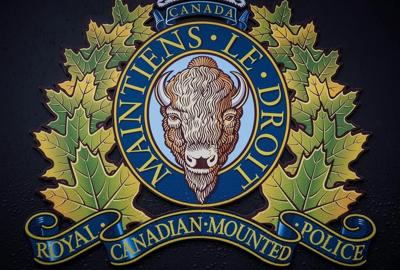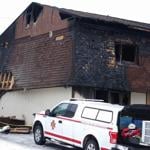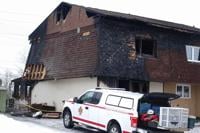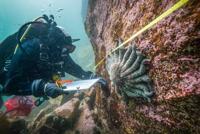WINNIPEG - RCMP are working with a First Nation in western Manitoba to investigate potential graves.
Minegoziibe Anishinabe, also known as Pine Creek First Nation, approached police in the summer after a private contractor detected anomalies beneath a church using ground-penetrating radar.
RCMP say officers met with the chief, councillors and elders to discuss concerns about possible crimes related to the ground anomalies after survivors spoke of abuses that occurred in the basement of the church.
The community says 14 anomalies were found in several locations at the site of the former Pine Creek Residential School including some under the Our Lady of Seven Sorrows Catholic Church.
Mounties say the investigation will include multiple phases, with the first to focus on speaking with witnesses, including elders and community members.
They say they will consider examining the site after they've collected evidence during the first phase.
"It is our responsibility to ensure that a thorough, methodical and culturally sensitive investigation takes place. It is the RCMP's role to collect evidence in order to provide the answers sought by the community," Supt. Rob Lasson said in a release.
The Pine Creek school was run by the Roman Catholic Church and operated from 1890 to 1969 in a few different buildings on a large plot of land. The ºÚÁϳԹÏÍø Centre for Truth and Reconciliation has a record of 21 child deaths at the school and survivors have long spoken about abuse there.
The community says in a release that 71 anomalies were discovered using ground-penetrating radar but they've asked police to investigate 14 of those.
Chief Derek Nepinak says survivors and members requested leadership do a detailed radar search of the grounds and the community is still searching for answers.
RCMP say a trauma-informed approach will be used throughout the investigation. A liaison will help ensure ongoing and open communication between the community and police.
"We are well aware of the historical role of the RCMP in carrying out mandates dictated by governments in the application of the Indian Act and the residential school system," he said in a release.
"It is our hope, however, that in establishing a true and clear history of what we have survived as Anishinabeg people, our ancestors and residential school survivors will forever be remembered for their strength and courage, while giving our future generations an opportunity to know the truth about who we are and what we have survived."
This report by ºÚÁϳԹÏÍø was first published Oct. 14, 2022.








































